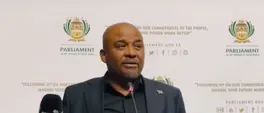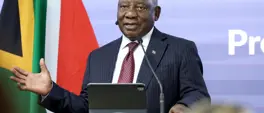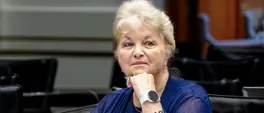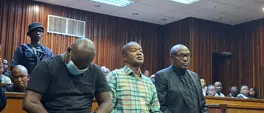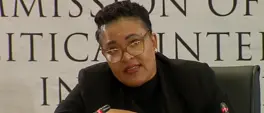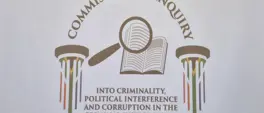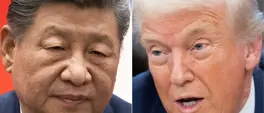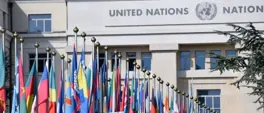El Salvador's Bukele defends ending term limit
AFP
3 August 2025 | 14:00El Salvador's Congress, dominated by Bukele's New Ideas party, passed the reform on Thursday.
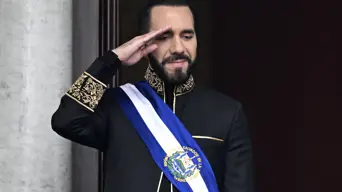
El Salvador's President Nayib Bukele salutes during the military parade after being sworn in at the National Palace in downtown San Salvador on June 1, 2024. El Salvador's ruling-party-dominated Congress is discussing indefinite presidential reelection on July 31, 2025, aiming towards President Nayib Bukele's continued presidency. This reform also proposes extending the term of office from five to six years.
SAN SALVADOR - El Salvador's president on Sunday defended a constitutional reform granting him the right to seek indefinite re-election, slamming critics who say it represents growing authoritarianism in the Central American nation.
"Ninety percent of developed countries allow the indefinite reelection of their head of government, and no one bats an eye. But when a small, poor country like El Salvador tries to do the same, suddenly it's the end of democracy," Bukele wrote in English on X.
El Salvador's Congress, dominated by Bukele's New Ideas party, passed the reform on Thursday.
It also extends presidential terms from five to six years.
Bukele, 44, who has been president since 2019 and was re-elected in 2024 with 85 percent of the vote, now holds near-total control over the country's institutions -- in what the opposition calls a "dictatorship."
He enjoys enormous domestic support for his tough campaign against criminal gangs but has been sharply criticized by international and local rights groups over his approach.
Bukele has notably supported US President Donald Trump's deportation campaign, taking in hundreds of expelled Venezuelan migrants under contentious legal grounds and housing them at the country's notorious CECOT penitentiary.
The constitutional reforms came after a wave of arrests targeting human rights defenders and government critics, prompting dozens of journalists and humanitarian workers to flee the country.
One of the few opposition lawmakers in the unicameral legislature, Marcela Villatoro, criticized the reforms on Thursday, saying: "today, democracy has died in El Salvador."
Bukele argued that the changes brought El Salvador into line with parliamentary systems where the prime minister can hold office indefinitely.
Critics will "rush to point out that 'a parliamentary system isn't the same as a presidential one,' as if that technicality justifies the double standard," he wrote in his post.
"But let's be honest, that's just a pretext. Because if El Salvador declared itself a parliamentary monarchy with the exact same rules as the UK, Spain, or Denmark, they still wouldn't support it," he added, claiming critics would "go ballistic if that happened".
With its reform, El Salvador joins Nicaragua and Venezuela as Latin American nations without presidential term limits.
Get the whole picture 💡
Take a look at the topic timeline for all related articles.





